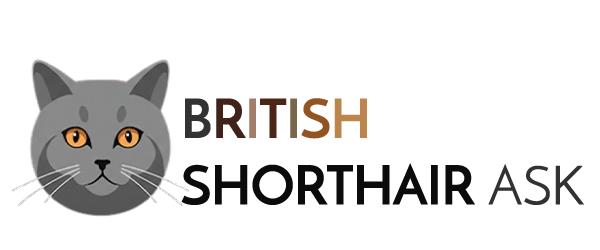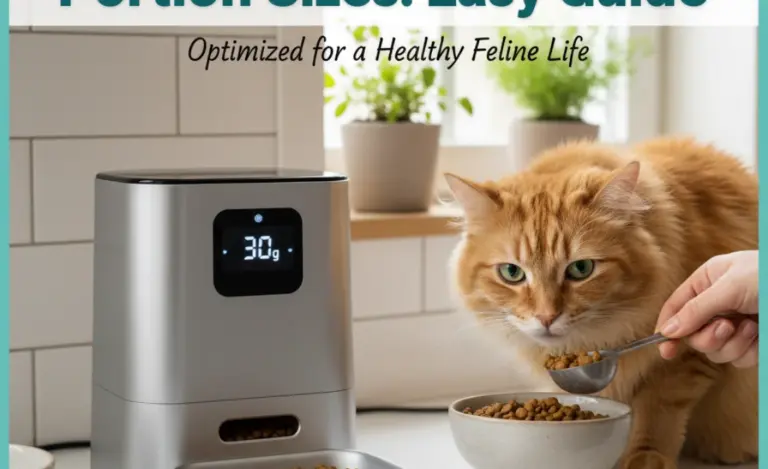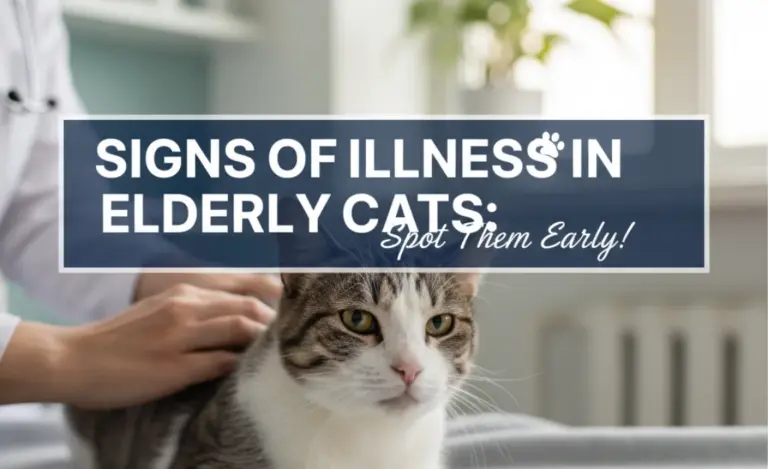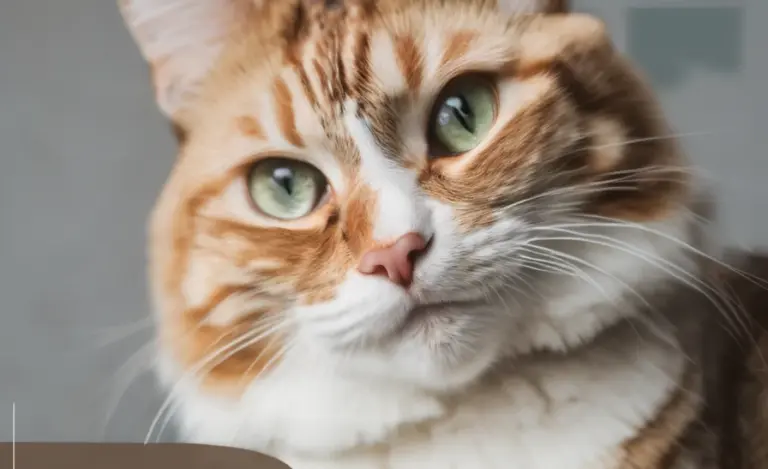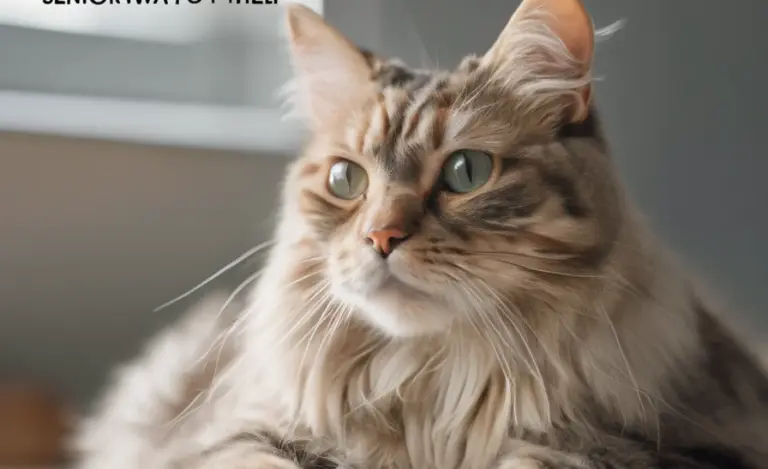Senior Cat Weight Loss Tips: Easy Steps That Work
Sudden weight loss in senior cats can be concerning, but it’s often manageable with the right approach. Start by consulting your vet to rule out underlying health issues. Adjust their diet to a senior-specific formula, ensure they’re eating enough calories, and provide easy access to food and water. Regular, gentle exercise can also help maintain muscle mass. Monitor their weight and behavior closely, and always follow your vet’s recommendations.
Is your senior cat looking a little too slender lately? It’s common for older cats to lose weight, and while a slight change might not be alarming, significant weight loss can signal an underlying health problem. As a British Shorthair expert, I know how important it is to keep a close eye on our feline friends, especially as they age. We’ll explore the potential causes of weight loss in senior cats, and what steps you can take to help them maintain a healthy weight and stay happy.
Together, we’ll explore practical, step-by-step solutions to address this common concern, from adjusting their diet to creating a comfortable feeding environment. By the end of this article, you’ll have a clear plan to help your senior cat thrive during their golden years. Let’s get started!
Understanding Weight Loss in Senior Cats
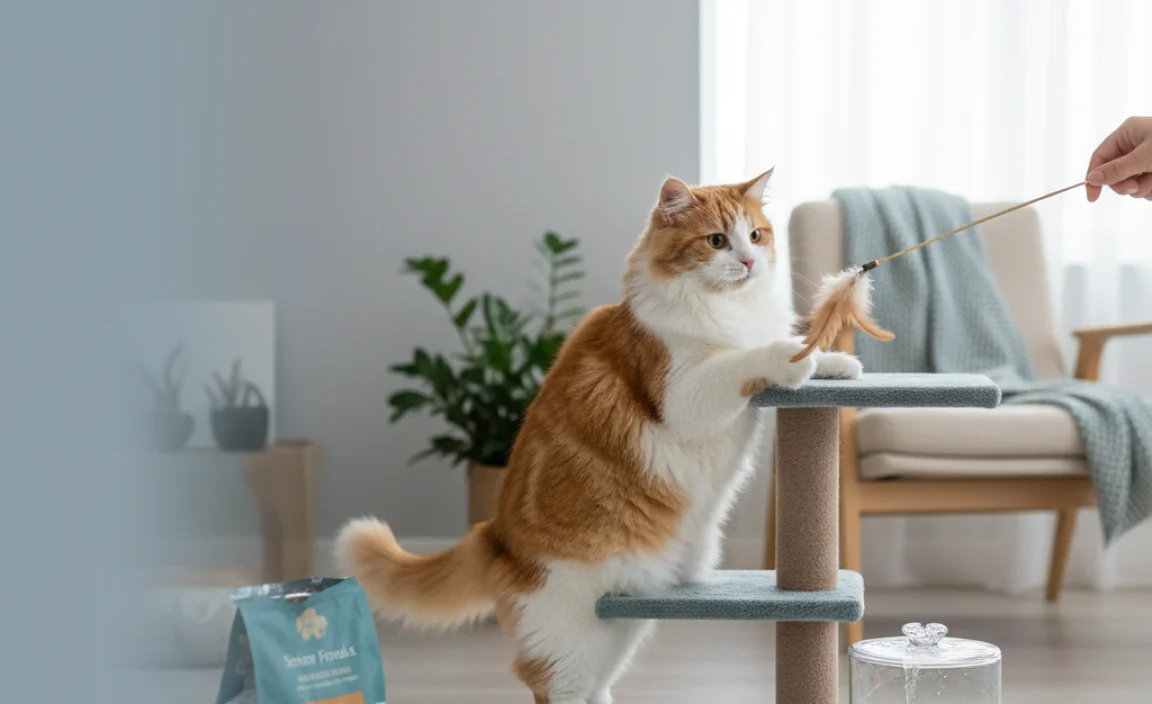
Weight loss in senior cats isn’t always a cause for immediate alarm, but it’s crucial to understand the potential reasons behind it. Several factors can contribute to a decrease in weight, ranging from age-related changes to underlying health issues.
Common Causes of Weight Loss
- Dental Issues: Older cats often experience dental problems such as gum disease or tooth decay, which can make eating painful and lead to decreased food intake.
- Decreased Appetite: As cats age, their sense of smell and taste can diminish, reducing their interest in food.
- Underlying Health Conditions: Conditions like hyperthyroidism, diabetes, kidney disease, and cancer are common in senior cats and can cause weight loss. According to the Cornell Feline Health Center, hyperthyroidism is a frequent culprit in older cats experiencing weight loss despite a normal or increased appetite.
- Muscle Loss: Sarcopenia, or age-related muscle loss, is a natural part of aging in cats. This loss of muscle mass can contribute to overall weight loss.
- Malabsorption: Conditions that affect the digestive system can impair nutrient absorption, leading to weight loss even if the cat is eating normally.
- Stress and Anxiety: Changes in their environment, such as a new pet or a move, can cause stress and reduce appetite.
When to Consult a Vet
While some weight loss may be normal, it’s essential to know when to seek veterinary advice. Consult your vet if you notice any of the following:
- Sudden or Rapid Weight Loss: If your cat loses a significant amount of weight in a short period.
- Other Symptoms: Weight loss accompanied by vomiting, diarrhea, lethargy, increased thirst, or changes in behavior.
- Changes in Appetite: A noticeable decrease or increase in appetite along with weight loss.
- Visible Physical Changes: Obvious loss of muscle mass or changes in body condition.
Regular check-ups with your vet are crucial for senior cats. These visits can help detect underlying health issues early, allowing for timely intervention and management. Early diagnosis and treatment can significantly improve your cat’s quality of life and help manage weight loss effectively.
Step-by-Step Guide to Addressing Weight Loss
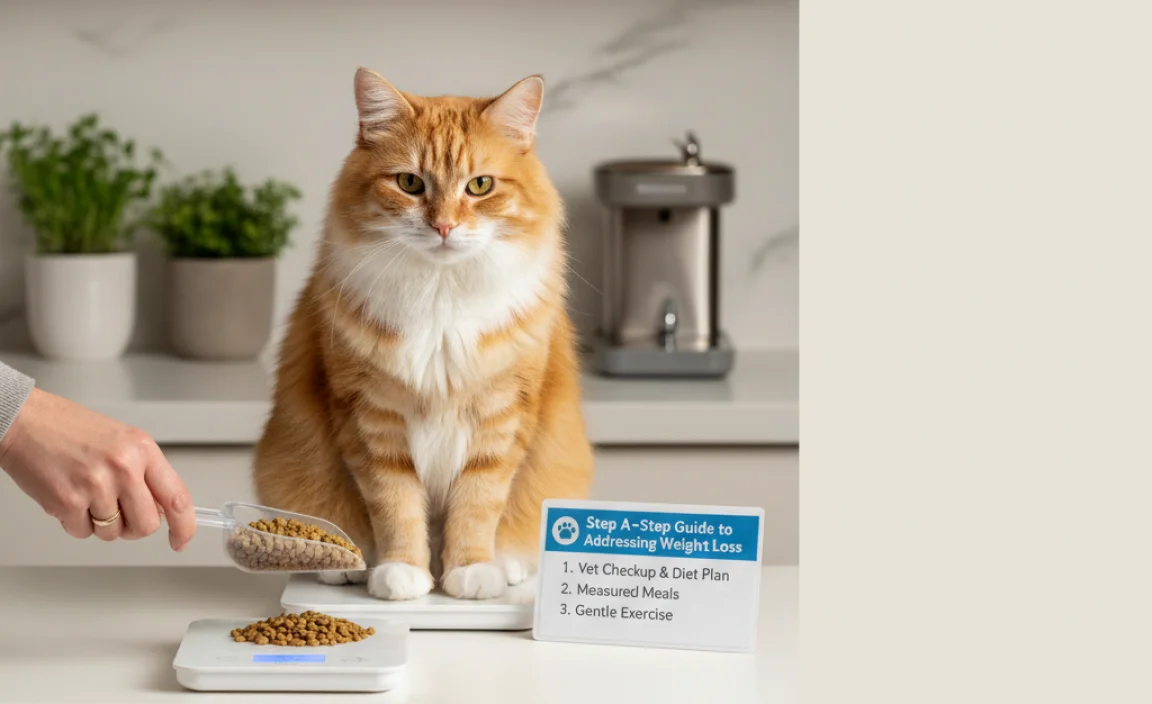
If your senior cat is losing weight, there are several steps you can take to address the issue and support their health. This guide provides a structured approach to help you manage your cat’s weight loss effectively.
Step 1: Veterinary Examination
The first and most crucial step is to schedule a visit to your veterinarian. A thorough examination can help identify any underlying health conditions causing the weight loss. Your vet may perform several tests, including:
- Blood Tests: To check for kidney disease, liver problems, diabetes, and hyperthyroidism.
- Urine Analysis: To assess kidney function and detect urinary tract infections.
- Fecal Examination: To check for parasites or digestive issues.
- Thyroid Test: To rule out hyperthyroidism, a common cause of weight loss in senior cats.
- Physical Examination: To assess overall health, check for dental problems, and evaluate muscle mass.
Based on the examination, your vet can provide a diagnosis and recommend an appropriate treatment plan. This plan may include medication, dietary changes, or other therapies to address the underlying cause of the weight loss.
Step 2: Adjusting Your Cat’s Diet
Diet plays a crucial role in managing weight loss in senior cats. Making the right dietary adjustments can help ensure they receive the necessary nutrients and calories to maintain a healthy weight.
Choose a High-Quality Senior Cat Food
- Nutrient-Rich: Look for a cat food specifically formulated for senior cats. These foods are typically higher in protein to support muscle mass and contain added vitamins and minerals to support overall health.
- Easily Digestible: Opt for foods that are easy to digest, especially if your cat has digestive issues.
- Palatable: Ensure the food is appealing to your cat. Palatability is crucial, especially if they have a decreased appetite.
Increase Caloric Intake
- Smaller, More Frequent Meals: Feeding your cat smaller meals more frequently throughout the day can make it easier for them to consume enough calories.
- Add Wet Food: Wet food is often more palatable and easier to eat than dry food. It also provides additional hydration, which is beneficial for senior cats.
- Supplementation: Consult your vet about adding supplements like omega-3 fatty acids or appetite stimulants to help increase your cat’s food intake.
Ensure Easy Access to Food and Water
- Elevated Bowls: Use elevated food and water bowls to make it easier for your cat to eat and drink, especially if they have arthritis or mobility issues.
- Multiple Feeding Stations: Place food and water bowls in multiple locations around the house to ensure your cat always has easy access.
- Fresh Water: Always provide fresh, clean water. Some cats prefer running water, so consider using a cat fountain.
Step 3: Monitoring Food Intake and Weight
Keeping a close eye on your cat’s food intake and weight is essential for tracking their progress and making necessary adjustments to their diet or care plan.
Track Food Consumption
- Measure Food: Use a measuring cup to ensure you are providing the correct amount of food each day.
- Record Intake: Keep a daily record of how much food your cat eats. This can help you identify any patterns or changes in their appetite.
- Monitor Treats: Be mindful of the number of treats you give your cat. While treats can be a good way to encourage eating, they should be given in moderation.
Regular Weigh-Ins
- Weigh Your Cat Regularly: Weigh your cat at least once a week to monitor their weight. Use a pet scale or weigh yourself while holding your cat and subtract your weight.
- Keep a Weight Chart: Record your cat’s weight on a chart to track their progress over time. This will help you identify any trends and make informed decisions about their care.
- Consult Your Vet: If you notice any significant changes in your cat’s weight, consult your vet for further guidance.
Step 4: Encouraging Exercise and Activity
Regular, gentle exercise can help senior cats maintain muscle mass and improve their overall health. However, it’s important to tailor the exercise to their abilities and avoid overexertion.
Gentle Play Sessions
- Short Play Sessions: Engage your cat in short, gentle play sessions several times a day. Use toys like feather wands, laser pointers, or soft toys that they can easily bat around.
- Adapt to Their Abilities: Adjust the intensity of the play sessions to your cat’s abilities. Avoid activities that require jumping or strenuous movements if they have arthritis or mobility issues.
Creating an Enriched Environment
- Climbing Structures: Provide low-level climbing structures or cat trees that are easy for your cat to access.
- Window Perches: Place a comfortable perch near a window so your cat can enjoy watching birds and other outdoor activities.
- Interactive Toys: Use interactive toys that dispense treats or require your cat to solve a puzzle to get a reward. These toys can help stimulate their mind and encourage activity.
Walking and Exploring
- Leash Training: If your cat is comfortable, consider leash training them for short, supervised walks outdoors.
- Safe Outdoor Access: Provide access to a safe, enclosed outdoor area where your cat can explore and enjoy the fresh air.
Step 5: Providing a Comfortable Environment
Creating a comfortable and stress-free environment is crucial for senior cats, especially those experiencing weight loss. A comfortable environment can help reduce stress, improve appetite, and support overall well-being.
Comfortable Resting Areas
- Soft Beds: Provide soft, comfortable beds in warm, quiet areas. Orthopedic beds can be particularly beneficial for cats with arthritis.
- Warmth: Ensure your cat has access to warm areas, especially during colder months. Consider using heated beds or blankets.
- Quiet Spaces: Create quiet, secluded spaces where your cat can retreat when they feel overwhelmed or stressed.
Reducing Stress
- Consistency: Maintain a consistent routine for feeding, playtime, and other activities.
- Avoid Changes: Minimize changes to their environment, such as rearranging furniture or introducing new pets.
- Pheromone Therapy: Use pheromone diffusers or sprays, such as Feliway, to help reduce stress and anxiety.
Regular Grooming
- Gentle Brushing: Brush your cat regularly to help remove loose fur and prevent matting. Regular grooming can also help stimulate circulation and improve their overall comfort.
- Nail Trimming: Keep their nails trimmed to prevent them from getting caught on furniture or scratching themselves.
Additional Tips for Managing Weight Loss
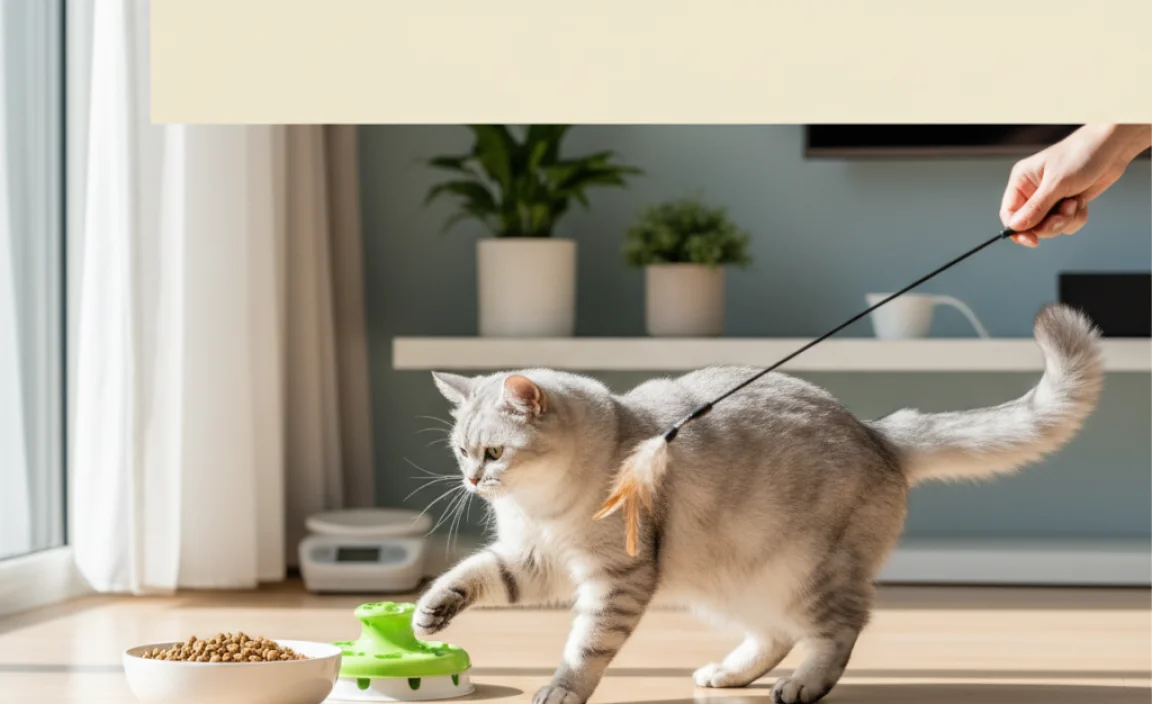
In addition to the steps outlined above, here are some additional tips to help manage weight loss in your senior cat:
- Monitor Hydration: Ensure your cat is drinking enough water. Dehydration can exacerbate weight loss and other health issues.
- Regular Dental Care: Schedule regular dental check-ups and cleanings to address any dental problems that may be affecting their appetite.
- Manage Pain: If your cat is experiencing pain due to arthritis or other conditions, work with your vet to develop a pain management plan.
- Provide Mental Stimulation: Keep your cat mentally stimulated with toys, puzzles, and interaction. Mental stimulation can help improve their overall well-being and appetite.
- Consider a Veterinary Nutritionist: If you’re struggling to manage your cat’s weight loss, consider consulting a veterinary nutritionist for personalized dietary recommendations.
Sample Diet Plan for Senior Cats with Weight Loss
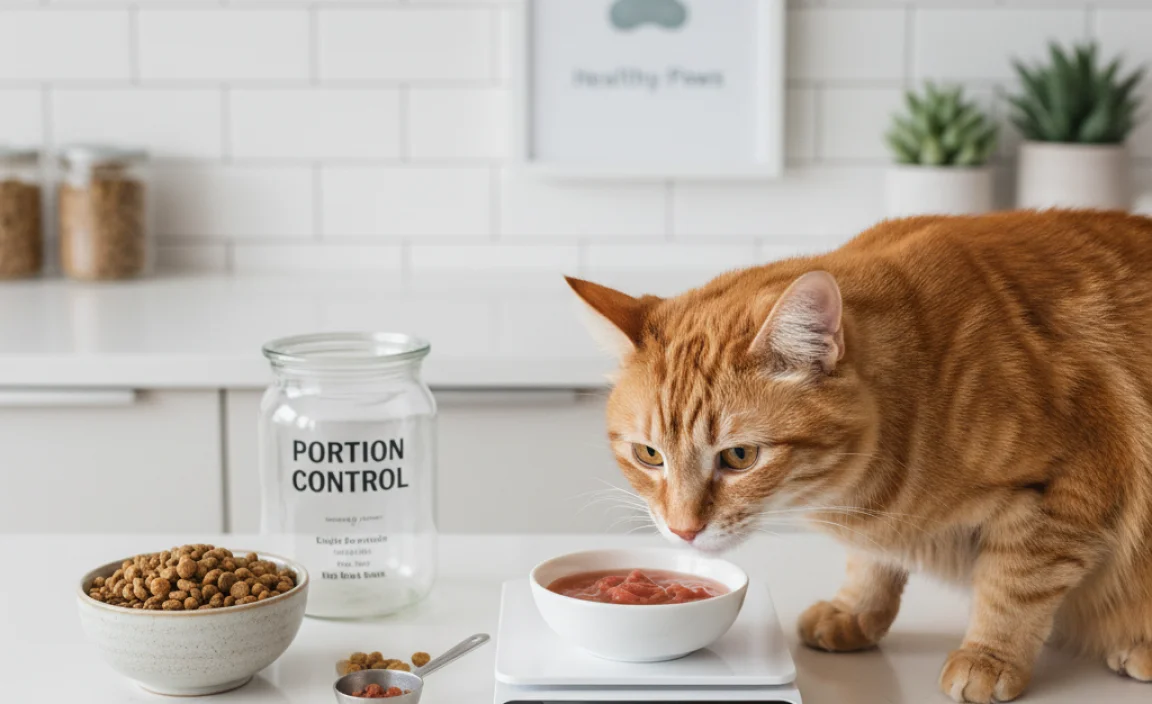
Here’s a sample diet plan to help your senior cat gain weight. Always consult with your veterinarian before making significant changes to your cat’s diet.
| Meal | Time | Food | Amount | Notes |
|---|---|---|---|---|
| Breakfast | 7:00 AM | High-quality senior wet food | 1/4 cup | Ensure it’s palatable and easy to digest. |
| Mid-Morning Snack | 10:00 AM | Small portion of cooked chicken or fish | 1 tablespoon | Offer as a treat to encourage eating. |
| Lunch | 1:00 PM | High-quality senior dry food | 1/8 cup | Mix with a little warm water to soften it. |
| Afternoon Snack | 4:00 PM | Nutritional supplement paste | As directed by vet | Administer slowly to ensure it’s well-tolerated. |
| Dinner | 7:00 PM | High-quality senior wet food | 1/4 cup | Warm slightly to enhance aroma and palatability. |
| Evening Snack | 10:00 PM | Small portion of high-protein treat | 1-2 treats | Offer before bedtime to help maintain weight overnight. |
Important Considerations:
- Hydration: Ensure fresh water is always available.
- Monitoring: Keep a close eye on your cat’s appetite and weight. Adjust portions as needed based on vet recommendations.
- Consultation: This is a sample plan; your vet may recommend specific adjustments based on your cat’s health condition.
Medications and Supplements
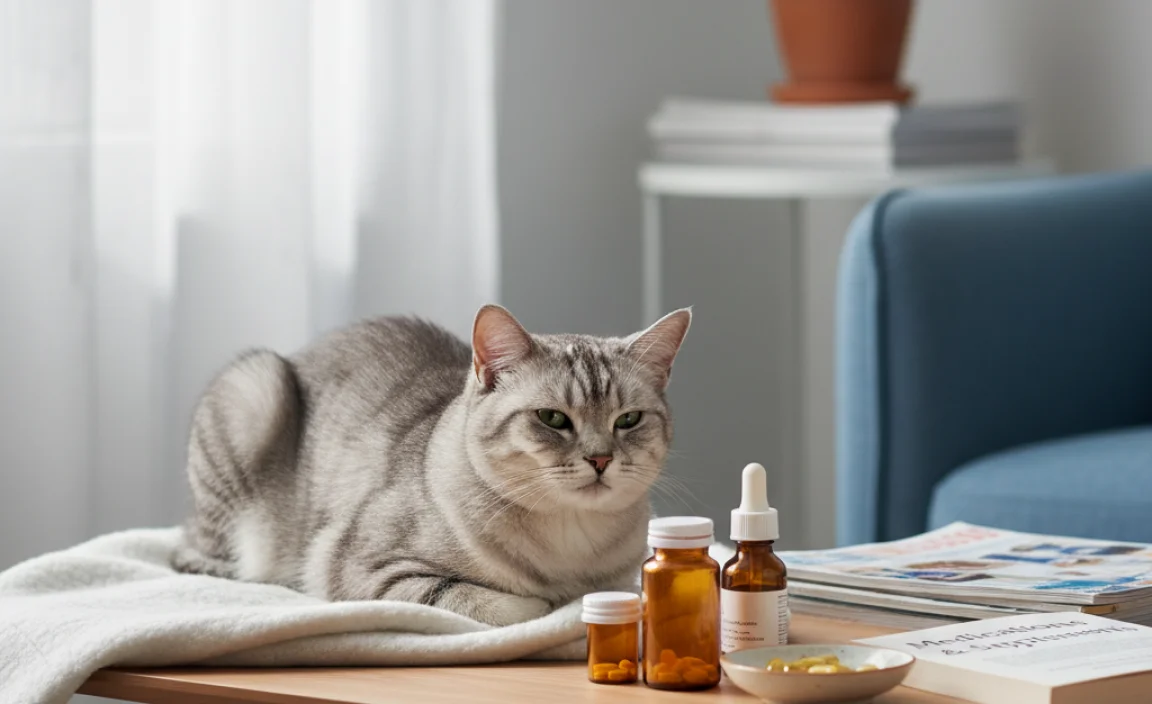
Depending on the underlying cause of your senior cat’s weight loss, your veterinarian may prescribe certain medications or supplements to help manage their condition and promote weight gain.
| Medication/Supplement | Purpose | Administration | Considerations |
|---|---|---|---|
| Appetite Stimulants (e.g., Mirtazapine, Cyproheptadine) | To increase appetite and encourage eating. | Oral medication, usually given once daily. | Monitor for side effects such as hyperactivity or sedation. |
| Digestive Enzymes | To aid in digestion and nutrient absorption. | Mixed with food before feeding. | Useful for cats with malabsorption issues. |
| Omega-3 Fatty Acids | To reduce inflammation and support overall health. | Liquid or capsule form, added to food. | Beneficial for cats with arthritis or inflammatory conditions. |
| Vitamin B12 (Cobalamin) | To improve energy levels and support nerve function. | Injection or oral supplement. | Often used in cats with gastrointestinal issues. |
| Probiotics | To promote a healthy gut microbiome and improve digestion. | Powder or capsule form, mixed with food. | Helpful for cats with diarrhea or digestive upset. |
Important Notes:
- Veterinarian Approval: Always consult your vet before starting any new medications or supplements.
- Dosage: Follow your vet’s instructions carefully regarding dosage and administration.
- Monitoring: Observe your cat for any adverse reactions or side effects.
FAQ: Senior Cat Weight Loss
What is considered significant weight loss in a senior cat?
Significant weight loss in a senior cat is generally considered to be a loss of 10% or more of their body weight over a period of 6-12 months. For example, if your cat weighs 10 pounds and loses 1 pound, that’s a significant amount.
How can I tell if my senior cat is losing weight?
You can tell if your senior cat is losing weight by regularly weighing them, feeling their ribs and spine (they should be easily felt but not protruding), and observing changes in their body condition, such as a loss of muscle mass or a more prominent skeletal structure.
Is weight loss always a sign of a serious health problem in senior cats?
No, weight loss isn’t always a sign of a serious health problem, but it should always be investigated by a vet. It can be due to age-related changes like muscle loss or decreased appetite, but it can also indicate underlying conditions like hyperthyroidism, diabetes, or kidney disease.
What are some common dental problems that can cause weight loss in senior cats?
Common dental problems that can cause weight loss in senior cats include gum disease (gingivitis and periodontitis), tooth decay, and dental abscesses. These conditions can make eating painful, leading to decreased food intake.
Can stress cause weight loss in senior cats?
Yes, stress can definitely cause weight loss in senior cats. Changes in their environment, such as a new pet, a move, or even changes in the household routine, can lead to stress and anxiety, which can reduce their appetite and cause weight loss.
What can I do to make food more appealing to my senior cat with a decreased appetite?
To make food more appealing to your senior cat, try warming the food slightly to enhance its aroma, offering wet food instead of dry, adding palatable toppers like tuna juice or low-sodium broth, and ensuring the food is easily accessible and served in a quiet, comfortable environment.
How often should I take my senior cat to the vet for check-ups?
Senior cats should have check-ups with the vet at least every six months. Regular check-ups can help detect and manage age-related health issues early, ensuring your cat stays as healthy and comfortable as possible.
Conclusion
Weight loss in senior cats can be a worrying issue, but with careful monitoring, appropriate dietary adjustments, and regular veterinary care, it can be managed effectively. Remember, early detection and intervention are key to ensuring your feline friend enjoys a happy, healthy, and comfortable life during their golden years. By following the steps outlined in this guide, you can help your senior cat maintain a healthy weight and thrive. Don’t hesitate to reach out to your veterinarian for personalized advice and support. Together, we can ensure your British Shorthair or any senior cat lives their best life!
